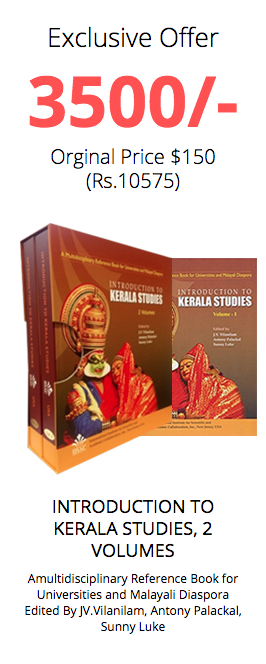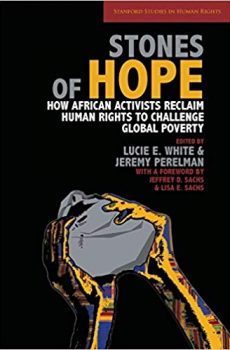
Stones of Hope
1,690.00₹ 1,290.00₹
Many human rights advocates agree that conventional advocacy tools― reporting abuses to international tribunals or shaming the perpetrators of human rights violations―have proven ineffective. Increasingly, social justice advocates are looking to social and economic rights strategies as promising avenues for change. However, widespread skepticism remains as to how to make such rights real on the ground. Stones of Hope engages with the work of remarkable African advocates who have broken out of the conventional boundaries of human rights practice to challenge radical poverty. Through a sequence of case studies and interpretive essays, it illustrates how human rights can be harnessed to generate democratic institutional innovations. Ultimately, this book brings the reader down from the heights of official human rights forums to the ground level of advocacy. It is a must-read for human rights advocates, development practitioners, students, educators, and all others interested in an equitable global society.

Men in Eden
2,090.00₹ 990.00₹
The American West of the nineteenth century was a world of freedom and adventure for men of every stripe—not least also those who admired and desired other men. Among these sojourners was William Drummond Stewart, a flamboyant Scottish nobleman who found in American culture of the 1830s and 1840s a cultural milieu of openness in which men could pursue same-sex relationships.
This book traces Stewart’s travels from his arrival in America in 1832 to his return to Murthly Castle in Perthshire, Scotland, with his French Canadian–Cree Indian companion, Antoine Clement, one of the most skilled hunters in the Rockies. Benemann chronicles Stewart’s friendships with such notables as Kit Carson, William Sublette, Marcus Whitman, and Jim Bridger. He describes the wild Renaissance-costume party held by Stewart and Clement upon their return to America—a journey that ended in scandal. Through Stewart’s letters and novels, Benemann shows that Stewart was one of many men drawn to the sexual freedom offered by the West. His book provides a tantalizing new perspective on the Rocky Mountain fur trade and the role of homosexuality in shaping the American West.

Leisure and cultural conflict in twentieth-century Britain
6,990.00₹ 3,690.00₹
This collection of essays addresses research trends in the history of British leisure while also presenting a wide range of articles on cultural conflict and leisure in the twentieth century. It includes innovative research on a number of topics, including television, cinema, the circus, women’s leisure, dance, football and drug culture. It provides an excellent entry to leisure studies and history, while addressing the contributions of other disciplines and exploring key historiographical trends. Three broad topics structure the collection; cultural contestation and social conflict in leisure; regulation and standardisation; and national identity embodied in leisure and popular culture.
The book will be useful to students and educators of twentieth-century and British history, as it offers accessible and topical studies that pique historical curiosity. In addition, historians, sociologists and cultural analysts of the twentieth century will find it essential for understanding pleasure and recreation in twentieth-century British society.

Netter’s Atlas of Human Embryology
3,500.00₹ 2,790.00₹
Here’s a rich pictorial review of normal and abnormal human prenatal development. For each body system or region, you’ll find a brief description of the developmental plan, with key concepts and terminology, followed by discussions of histological principles, the classification of congenital defects, and basic cellular, molecular, and genetic concepts.
An emphasis on morphological patterns in the embryo and fetus makes it easy to understand the structure and function of the adult body and the embryonic basis of birth defects.
Summary tables and terminology sections at the end of each chapter, plus an appendix with all major congenital defects and their embryonic basis, make it easy to review course material and prepare for the USMLE.
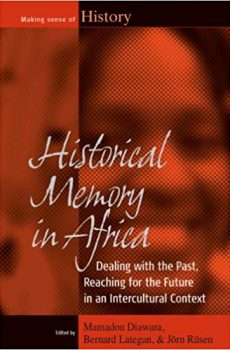
Historical Memory in Africa
8,400.00₹ 5,990.00₹
A vast amount of literature―both scholarly and popular―now exists on the subject of historical memory, but there is remarkably little available that is written from an African perspective. This volume explores the inner dynamics of memory in all its variations, from its most destructive and divisive impact to its remarkable potential to heal and reconcile. It addresses issues on both the conceptual and the pragmatic level and its theoretical observations and reflections are informed by first-hand experiences and comparative reflections from a German, Indian, and Korean perspective. A new insight is the importance of the future dimension of memory and hence the need to develop the ability to ‘remember with the future in mind’. Historical memory in an African context provides a rich kaleidoscope of the diverse experiences and perspectives―and yet there are recurring themes and similar conclusions, connecting it to a global dialogue to which it has much to contribute, but from which it also has much to receive.

Out of Place
8,400.00₹ 1,890.00₹
The Kakoli of the Western Highlands of Papua New Guinea (PNG), the focus of this study, did not traditionally have a concept of mental illness. They classified madness according to social behaviour, not mental pathology. Moreover, their conception of the person did not recognise the same physical and mental categories that inform Western medical science, and psychiatry in particular was not officially introduced to PNG until the late 1950s. Its practitioners claimed that it could adequately accommodate the cultural variation among Melanesian societies. This book compares the intent and practice of transcultural psychiatry with Kakoli interpretations of, and responses to, madness, showing the reasons for their occasional recourse to psychiatric services. Episodes involving madness, as defined by the Kakoli themselves, are described in order to offer a context for the historical lifeworld and praxis of the community and raise fundamental questions about whether a culturally sensitive psychiatry is possible in the Melanesian context.

Forging Political Identity
8,400.00₹ 7,895.00₹
Escaping the traditional focus on Paris, the author examines the divergent political identities of two occupational groups in Lyon, metal and silk workers, who, despite having lived and worked in the same city, developed different patterns of political practices and bore distinct political identities. This book also examines in detail the way that gender relations influenced industrial change, skill, and political identity. Combining empirical data collected in French archives with social science theory and methods, this study argues that political identities were shaped by the intersection of the prevailing political climate with the social relations surrounding work in specific industrial settings.

Lost to the State
8,400.00₹ 2,900.00₹
Childhood held a special place in Soviet society: seen as the key to a better future, children were imagined as the only privileged class. Therefore, the rapid emergence in post-Soviet Russia of the vast numbers of vulnerable ‘social orphans’, or children who have living relatives but grow up in residential care institutions, caught the public by surprise, leading to discussions of the role and place of childhood in the new society. Based on an in-depth study the author explores dissonance between new post-Soviet forms of family and economy, and lingering Soviet attitudes, revealing social orphans as an embodiment of a long-standing power struggle between the state and the family. The author uncovers parallels between (post-) Soviet and Western practices in child welfare and attitudes towards ‘bad’ mothers, and proposes a new way of interpreting kinship where the state is an integral member.
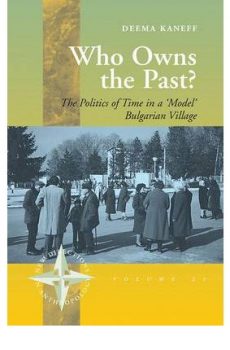
Who Owns the Past
8,400.00₹ 1,995.00₹
In the decades since the collapse of socialism in eastern Europe, time has been a central resource under negotiation. Focusing on a local community that was considered a “model” in the socialist period, the author explores a variety of state-sponsored and unofficial pasts – history, folklore, and tradition – and shows how they “fit” together in everyday life. During the socialist period, the past was a central dimension of local politics and village identity. Post-socialist development has demanded a revaluation of temporality – as well as public and private space. This has led to fundamental changes in social life and political relations, reduced local resources, threatened village identity and transformed political activity through the emergence of new political elites.
While the full implications of this process are still being played out, this study underlines some of the fundamental processes prevalent across eastern Europe that help explain widespread ambiguity vis-B-vis post-socialist reform.
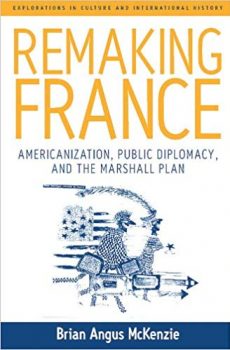
Remaking France
8,400.00₹ 1,995.00₹
Public diplomacy, neglected following the end of the Cold War, is once again a central tool of American foreign policy. This book, examining as it does the Marshall Plan as the form of public diplomacy of the United States in France after World War Two, offers a timely historical case study. Current debates about globalization and a possible revival of the Marshall Plan resemble the debates about Americanization that occurred in France over fifty years ago. Relations between France and the United States are often tense despite their shared history and cultural ties, reflecting the general fear and disgust and attraction of America and Americanization. The period covered in this book offers a good example: the French Government begrudgingly accepted American hegemony even though anti-Americanism was widespread among the French population, which American public diplomacy tried to overcome with various cultural and economic activities examined by the author. In many cases French society proved resistant to Americanization, and it is questionable whether public diplomacy actually accomplished what its advocates had promised. Nevertheless, by the 1950s the United States had established a strong cultural presence in France that included Hollywood, Reader’s Digest, and American-style hotels.
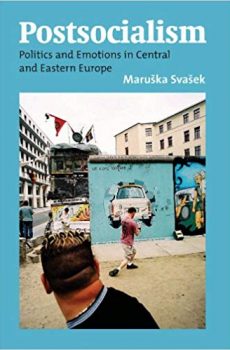
Postsocialism: Politics and Emotions in Central and Eastern Europe
8,400.00₹ 2,870.00₹
In many parts of post-socialist Europe the tumultuous political and economic developments have generated strong emotions, ranging from hope and euphoria to disappointment, envy, disillusionment, sorrow, loneliness, and hatred. Yet these aspects have been largely neglected in analyses of the profound transformations that have taken place in Central and Eastern Europe since 1990. Based on a wide variety of ethnographic case studies focusing on Russian, Siberian, Romanian, Bulgarian, Slovenian, Croatian, Czech, and Polish communities, this volume proves the significance of emotions to post-socialist political processes as an inherent part of the transformations and sheds new light on the impact of local, national, and transnational political forces that have given rise to the resurgence of nationalist sentiments, increasing poverty and marginalization, conflicts arising from the restitution of state property, constitutional changes, and economic deprivation.
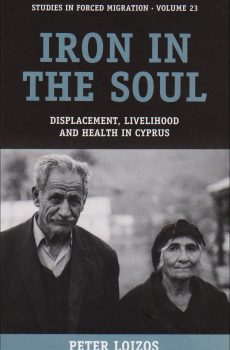
Iron in the Soul: Displacement, Livelihood and Health in Cyprus (Forced Migration)
8,400.00₹ 2,990.00₹
In his vivid, lively account of how Greek Cypriot villagers coped with a thirty-year displacement, Peter Loïzos follows a group of people whom he encountered as prosperous farmers in 1968, yet found as disoriented refugees when revisiting in 1975. By providing a forty year in-depth perspective unusual in the social sciences, this study yields unconventional insights into the deeper meanings of displacement. It focuses on reconstruction of livelihoods, conservation of family, community, social capital, health (both physical and mental), religious and political perceptions. The author argues for a closer collaboration between anthropology and the life sciences, particularly medicine and social epidemiology, but suggests that qualitative life-history data have an important role to play in the understanding of how people cope with collective stress.
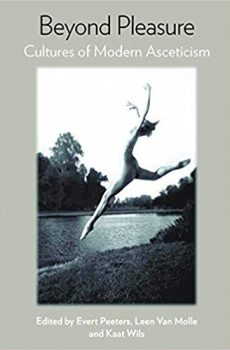
Beyond Pleasure
8,400.00₹ 3,890.00₹
Asceticism, so it is argued in this volume, is a modern category. The ubiquitous cult of the body, of fitness and diet equally evokes the ongoing success of ascetic practices and beliefs. Nostalgic memories of hardship and discipline in the army, youth movements or boarding schools remain as present as the fashionable irritation with the presumed modern-day laziness. In the very texture of contemporary culture, age-old asceticism proves to be remarkably alive. Old ascetic forms were remoulded to serve modern desires for personal authenticity, an authenticity that disconnected asceticism in the course of the nineteenth century from two traditions that had underpinned it since classical antiquity: the public, republican austerity of antiquity and the private, religious asceticism of Christianity. Exploring various aspects such as the history of the body, of aesthetics, science, and social thought in several European countries (Great Britain, France, Germany, Austria and Belgium), the authors show that modern asceticism remains a deeply ambivalent category. Apart from self-realisation, classical and religious examples continue to haunt the ascetic mind.
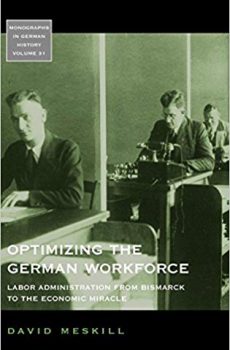
Optimizing the German Workforce
8,400.00₹ 2,080.00₹
During the twentieth century, German government and industry created a highly skilled workforce as part of an ambitious program to control and develop the country’s human resources. Yet, these long-standing efforts to match as many workers as possible to skilled vocations and to establish a system of job training have received little scholarly attention, until now. The author’s account of the broad support for this program challenges the standard historical accounts that focus on disagreements over the German political-economic order and points instead to an important area of consensus. These advances are explained in terms of political policies of corporatist compromise and national security as well as industry’s evolving production strategies. By tracing the development of these policies over the course of a century, the author also suggests important continuities in Germany’s domestic politics, even across such different regimes as Imperial, Weimar, Nazi, and post-1945 West Germany.

The Body in Asia
8,400.00₹ 2,595.00₹
The past few decades have seen growing interest in the study of the body. However, the increasing number of exciting and influential publications has primarily, if not exclusively, focused on the body in Western cultures. The various works produced by Asian scholars remain largely unknown to Western academic debates even though Asia is home to a host of rich body cultures and religions. The peoples of Asia have experienced colonization, decolonization, and now globalization, all of which make the ‘body in Asia’ a rewarding field of research. This unique volume brings together a number of scholars who work on East, Southeast and South Asia and presents original and cutting edge research on the body in various Asian cultures.
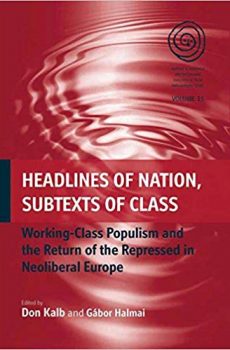
Headlines of Nation, Subtexts of Class
8,400.00₹ 2,655.00₹
Since 1989 neo-nationalism has grown as a volatile political force in almost all European societies in tandem with the formation of a neoliberal European Union and wider capitalist globalizations. Focusing on working classes situated in long-run localized processes of social change, including processes of dispossession and disenfranchisement, this volume investigates how the experiences, histories, and relationships of social class are a necessary ingredient for explaining the re-emergence and dynamics of populist nationalism in both Eastern and Western Europe. Featuring in-depth urban and regional case studies from Romania, Hungary, Serbia, Italy and Scotland this volume reclaims class for anthropological research and lays out a new interdisciplinary agenda for studying identity politics in the intensifying neoliberal conjuncture.
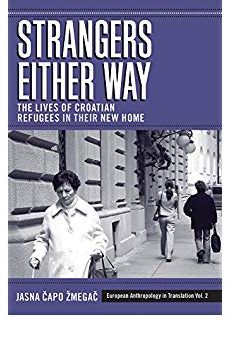
Strangers Either Way
8,400.00₹ 3,800.00₹
Croatia gained the world’s attention during the break-up of Yugoslavia in the early 1990s. In this context its image has been overshadowed by visions of ethnic conflict and cleansing, war crimes, virulent nationalism, and occasionally even emergent regionalism. Instead of the norm, this book offers a diverse insight into Croatia in the 1990s by dealing with one of the consequences of the war: the more or less forcible migration of Croats from Serbia and their settlement in Croatia, their “ethnic homeland.” This important study shows that at a time in which Croatia was perceived as a homogenized nation-in-the-making, there were tensions and ruptures within Croatian society caused by newly arrived refugees and displaced persons from Serbia and Bosnia and Herzegovina. Refugees who, in spite of their common ethnicity with the homeland population, were treated as foreigners; indeed, as unwanted aliens.

The Power of Entrepreneurs
8,400.00₹ 2,050.00₹
Although Spain is an important member of the EU, relatively little is known about its economy and its interrelationship with political forces. This book, the first of its kind, offers a long-term view and analyzes this ever-changing relationship throughout the 20th century with its various upheavals such as the crisis of the democratic republic and the civil war in the 1930s, the long General Franco dictatorship from the 1940s until the 1970s and the subsequent transition to democracy. From the detailed studies of individual cases, specific companies as well as entrepreneurial organizations, a very diverse picture emerges, contradicting widespread simplistic interpretations of politico-economic linkages, which demonstrates both the pluralism of the economic interests as well as the complexity of their relationship to the political class.

Sibling Relations and the Transformations of European Kinship
8,400.00₹ 2,250.00₹
Recently considerable interest has developed about the degree to which anthropological approaches to kinship can be used for the study of the long-term development of European history. From the late middle ages to the dawn of the twentieth century, kinship – rather than declining, as is often assumed – was twice reconfigured in dramatic ways and became increasingly significant as a force in historical change, with remarkable similarities across European society. Applying interdisciplinary approaches from social and cultural history and literature and focusing on sibling relationships, this volume takes up the challenge of examining the systemic and structural development of kinship over the long term by looking at the close inner-familial dynamics of ruling families (the Hohenzollerns), cultural leaders (the Mendelssohns), business and professional classes, and political figures (the Gladstones)in France, Italy, Germany, and England. It offers insight into the current issues in kinship studies and draws from a wide range of personal documents: letters, autobiographies, testaments, memoirs, as well as genealogies and works of art.

The Life of Property
8,400.00₹ 1,790.00₹
In Béarn, a region of south-west France, longstanding and resilient ideas of property and practices of inheritance control the destinies of those living in the foothills of the Pyrenees. Based on extensive fieldwork and archival research that combines ethnography and intellectual history, this study explores the long-term continuities of this particular way of life within a broad framework. These local ideas have found expression twice at the national level. First, sociological arguments about the family, proposed by Frédéric Le Play, shaped debates on social reform and the repair of national identity during the last third of the nineteenth century – and these debates would subsequently influence contemporary European thought and social policy. Second, these local ideas entered into late twentieth-century sociological categories through the influential work of Pierre Bourdieu. Through these examples and others, the author illustrates the multi-layered life of these local concepts and practices and the continuing contribution of the local to modern European national history.

